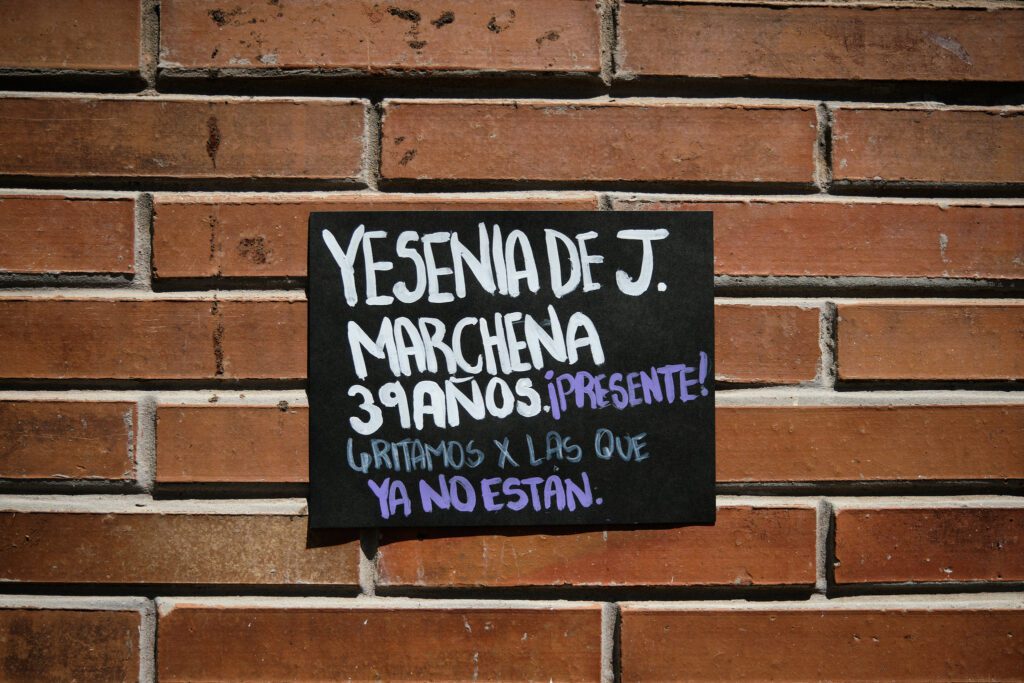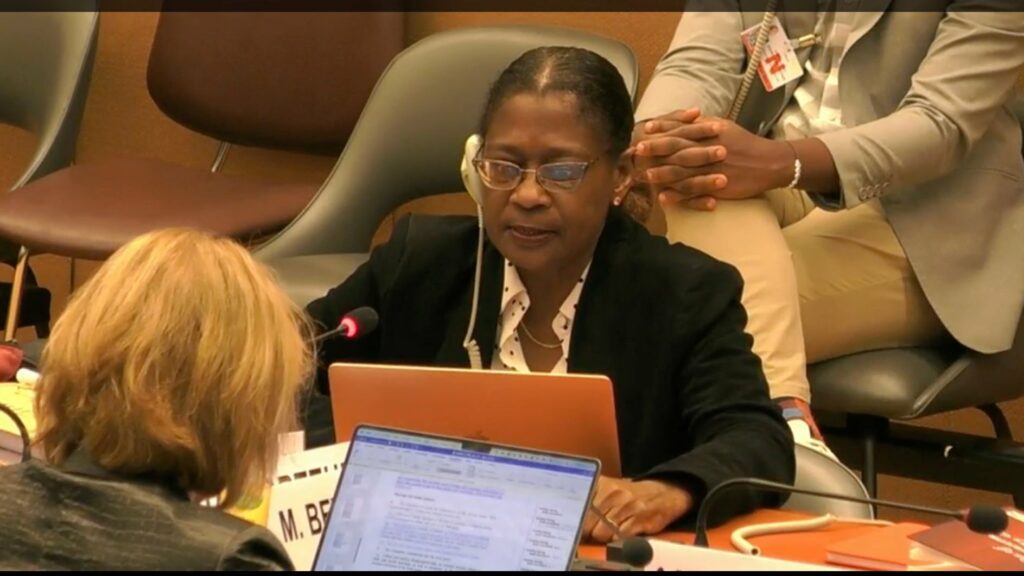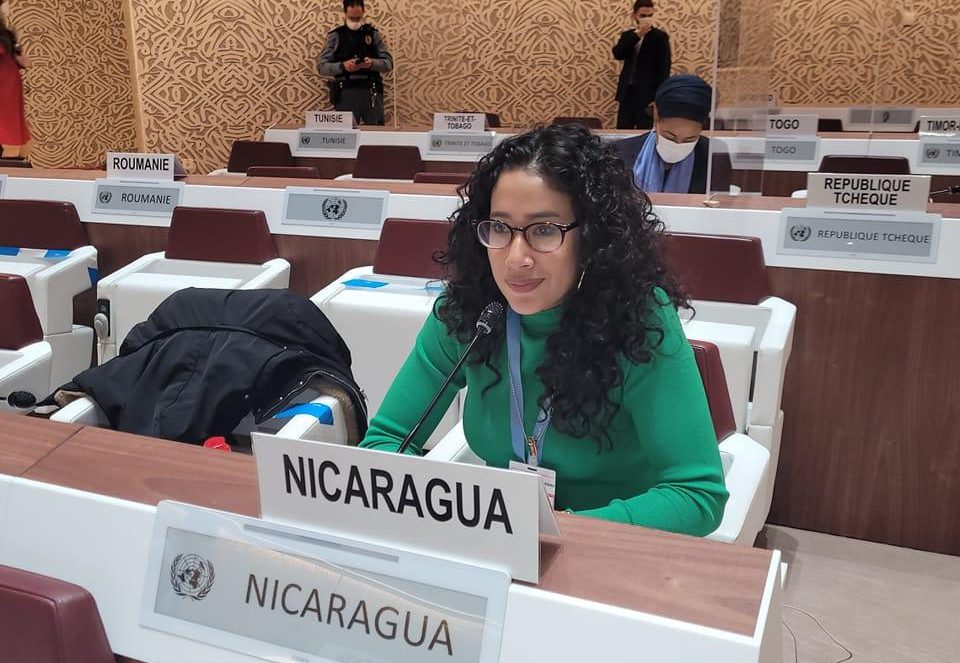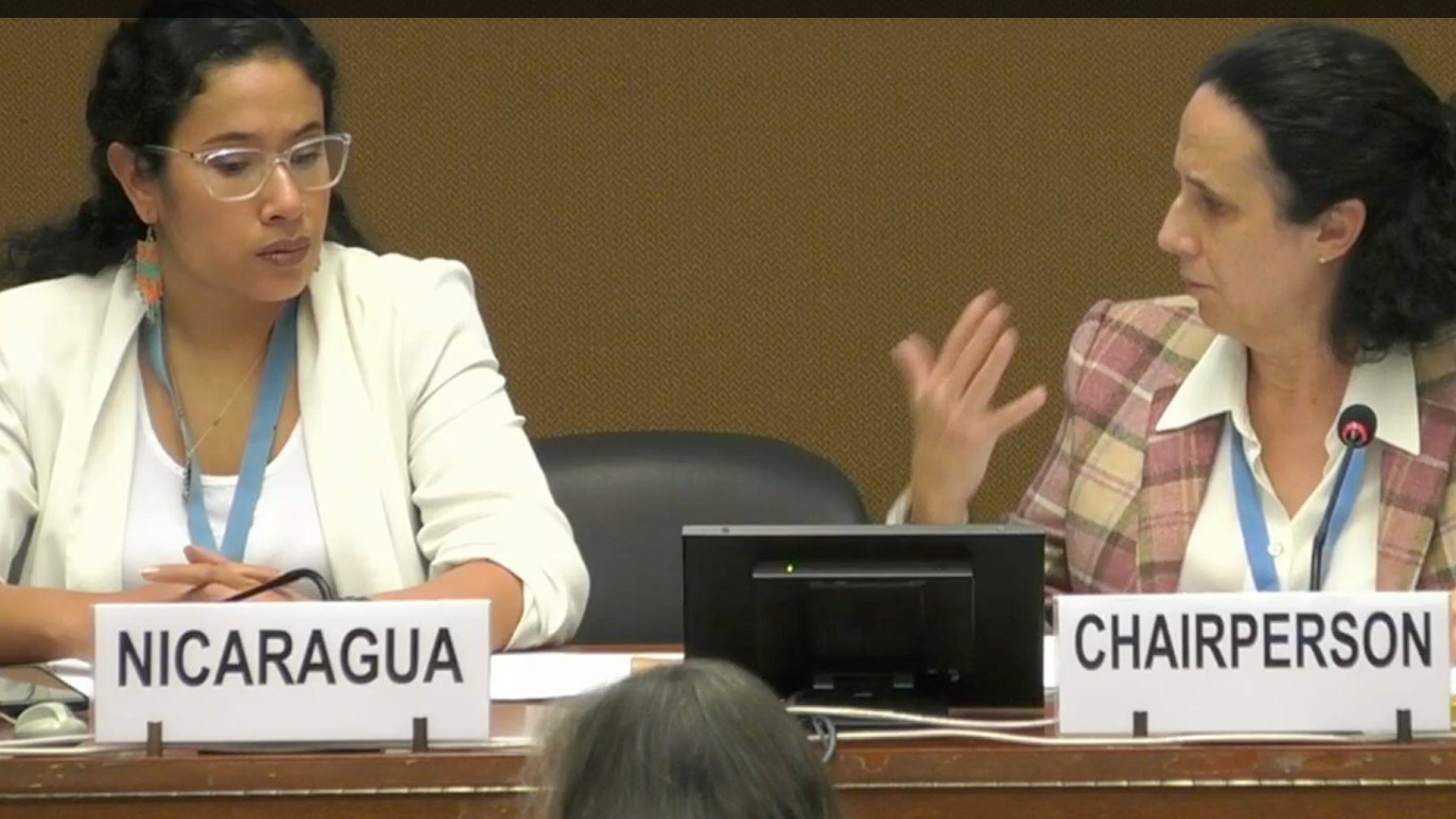For non-compliance with its responsibilities as a State party to the Committee on the Elimination of Discrimination against Women (CEDAW) and for “the thousands of days in which nothing has been done to protect Nicaraguan women”, Rosario González de Manalo, recommended the expulsion of Nicaragua from the Committee, during the 86th session held last October 23.
In that session, the report delivered by the State of Nicaragua to the Committee on the List of issues and questions issued by the United Nations in 2019 about women’s rights in the country, in particular, the protection of these in the context of the socio-political crisis that arose in 2018, was to be evaluated.
However, said report was never delivered, despite multiple requests from CEDAW. Instead, the Nicaraguan ambassador sent by the Ortega-Murillo regime, Rosalía Concepción Bohórquez Palacios, called the questions issued by the UN “malicious, biased, partial and ill-intentioned” and assured that the Committee’s actions were harmful and interfering.
“We denounce and we will not get tired of continuing to do so about the harmful actions of this Committee and the slave-owning and sexist countries of the West, which seek to translate partial, biased and subjective information, which only seeks to distort our purpose of fully achieving the common good and peace”, said Bohórquez.
After a violent speech against human rights organizations, Bohórquez left the room when the president of the Committee, Ana Peláez, was addressing her. After this, Manalo lamented Nicaragua’s conduct “not only today”, but also in recent years.
Unresponsive to women’s rights since 2007

The experts described Bohórquez’s opinions and statements as ” preoccupying”, and highlighted Nicaragua’s unwillingness to account for its obligations as a State since dictator Daniel Ortega assumed power in 2007.
“In reality our work is based precisely on contrasts based on the reports they (State of Nicaragua) provide. As you know, we are in a truly exceptional situation because the last report provided by Nicaragua was in February 2007 and today we would be reviewing the seventh, eighth, ninth and tenth reports. During this entire period we have very little information from the State”, said expert Leticia Bonifaz Alfonzo.
Regime ignores requests for “constructive dialogue”
President Ana Peláez stated at the beginning of the session that the Nicaraguan State had previously been urged to engage in a constructive dialogue with the Committee and several measures were established to ensure its cooperation.
Among the measures were the invitation to the country to participate in the 80th session in 2021; the invitation to present reports in 2022; the issuance of reminders to respond to the List of Issues and Questions; as well as the invitation to attend an informative meeting held in September of this year.
However, the Ortega-Murillo regime did not provide any response to these calls, not even when it was time to inform about the delegates who would participate in this session. Therefore, Bohórquez’s arrival came as a surprise.
“I am concerned about the opinions expressed by the ambassador regarding the work of this committee, which is in charge of following up on the implementation of the State party. This is an obligation that the State, in this case Nicaragua, has towards women and girls in the country’s territory,” said Peláez.
Experts indicate concern for women’s vulnerability

In the absence of a State delegation, the Committee experts denounced the violation of multiple women’s rights and the arbitrary actions of the Ortega-Murillo regime that expose thousands of women and girls in the country to violence.
Among them, expert Lecitia Bonifaz recalled that in November of this year Nicaragua will leave the Organization of American States (OAS), concluding its exit process that began in 2021. This would leave women in a state of defenselessness, as they would not have a regional body to which to denounce the violation of their rights.
Bonifaz also denounced the various reforms to the Political Constitution and the Integral Law against Violence against Women that prioritize the family and the community, over a life free of violence for women.
“It is based on this idea of Christian values that laws have been reformed to seek conciliation between the aggressor and the victim in cases of domestic violence,” she said. “Which increases the risk of impunity, in addition to exposing victims to re-victimization and retaliation,” she added.
Other experts, such as Marion Bethel, denounced the denationalization and banishment of Nicaraguan women human rights defenders, as well as the closure of women’s organizations. According to Bethel, the latter exacerbates the vulnerability of women and girls, as they are exposed to gender-based violence and human trafficking.
Bohórquez, a loyal follower of the dictatorship

Rosalía Bohórquez, 33 years old, was appointed Ambassador Extraordinary to the UN Office and other international organizations based in Geneva, Switzerland, in March 2022.
Prior to this position, she was vice president of the National Union of Nicaraguan Students (UNEN), assumed the position of minister counselor with consular functions at the Nicaraguan embassy in Switzerland and worked as a translator for the dictatorship.





